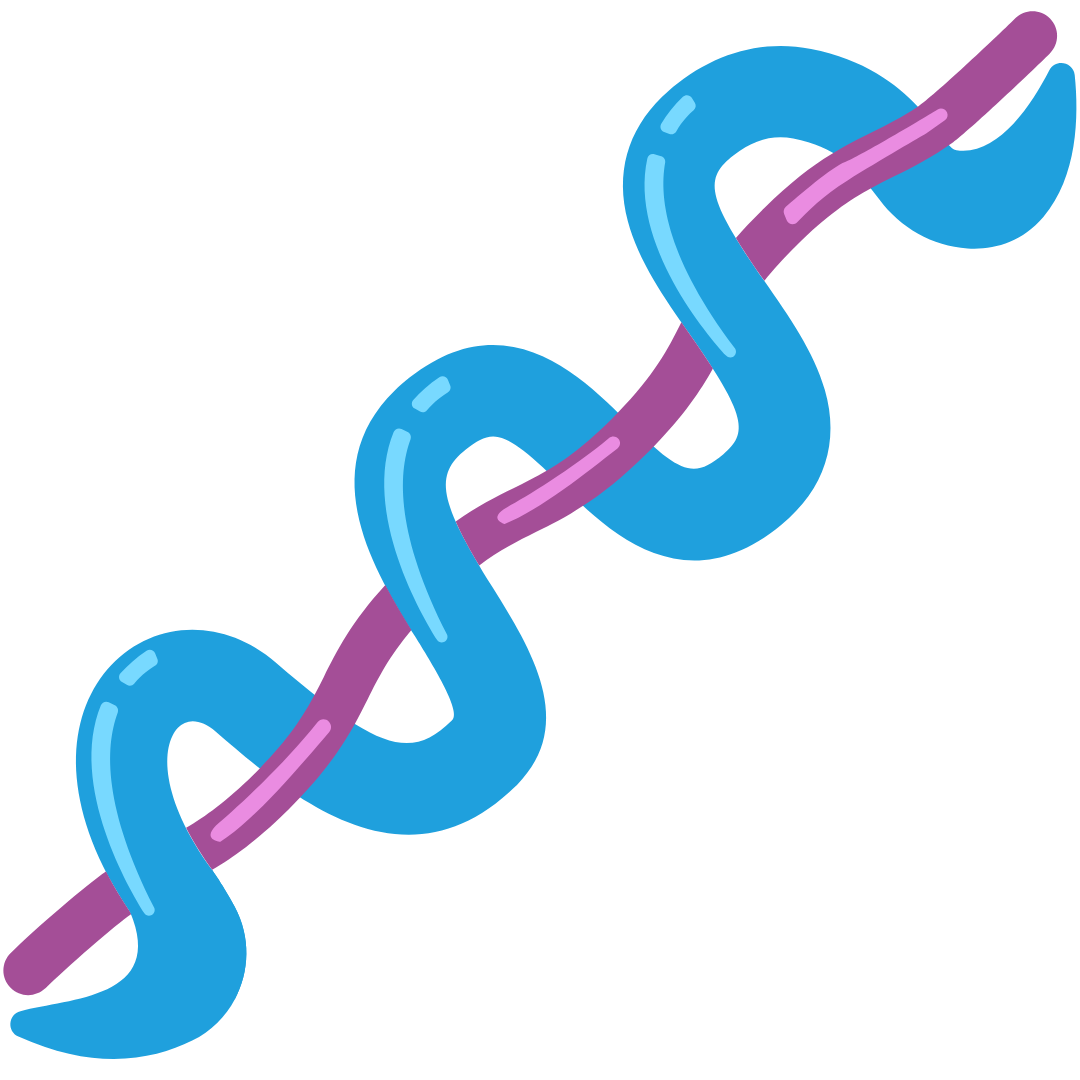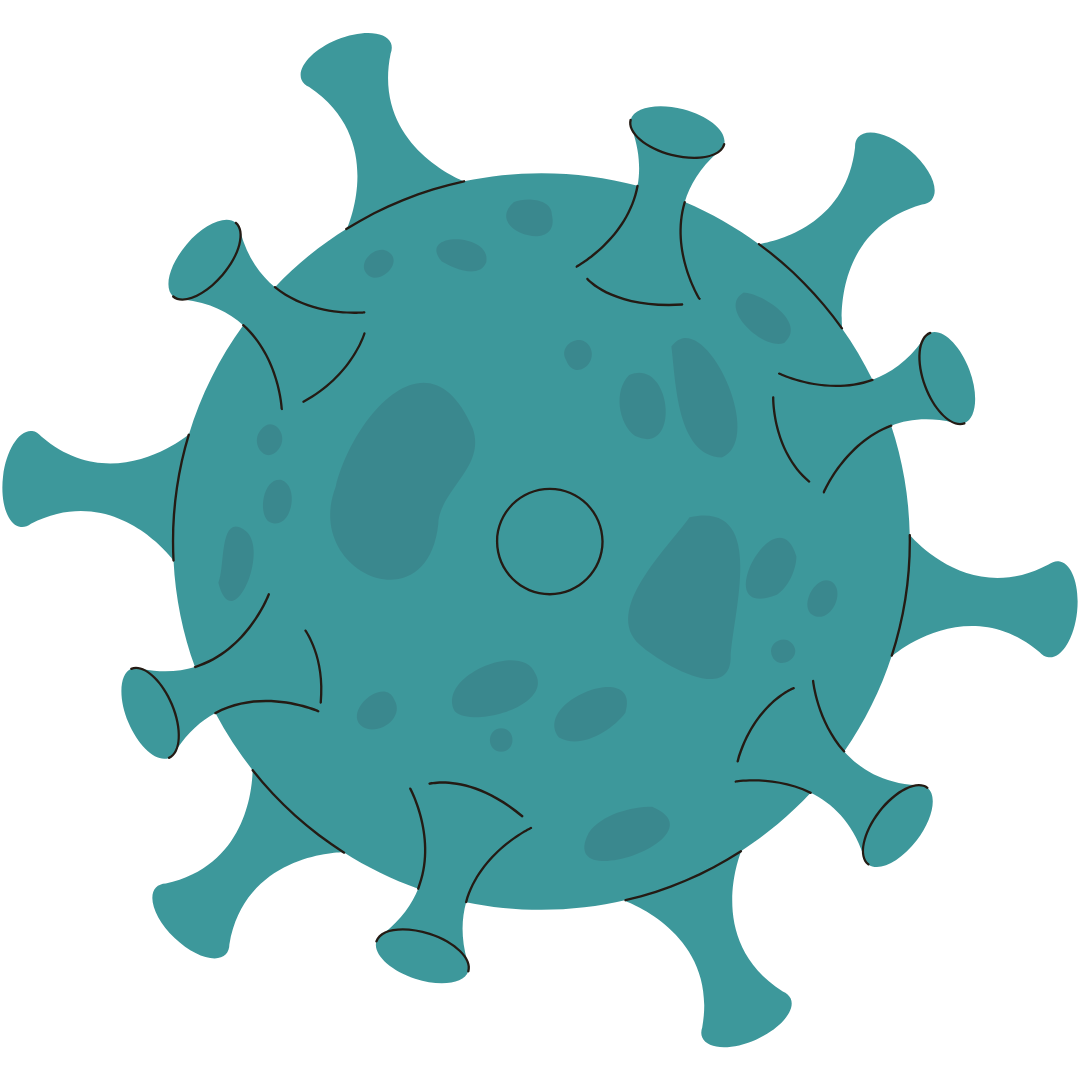STBBI Testing
What are STBBIs?
STBBIs are Sexually Transmitted and Blood Borne Infections.
Like other infections, they attack your immune system and can be passed on to others.
Someone with an STBBI can be symptomatic (feels like they have a cold or flu, painful urination, and/or sores around the genitals) or be asymptomatic (doesn’t feel any different but can still pass on the infection).
How do you get them?
STBBIs are passed onto others by bodily fluids. STBBIs can be transmitted through:
Vaginal Fluid
Anal Fluid
Semen (including pre-cum)
Blood
Breast Milk
Why should I get tested?
Knowing your STBBI status is part of engaging in consensual sexual interactions. Your partner(s) have a right to know your status so they can make informed decisions about their own health and the health of any other partner(s) they might have.
Knowing your status also allows you to treat or manage any symptoms you have. Even if you are asymptomatic now, STBBIs can cause health problems that are harder to treat or manage later in life.
Do I have an STI?
STIs (or STBBIs) are very common. Most of them are curable, or manageable with medications.
If you’ve had sexual contact, you could have gotten an STI. This is why frequent testing is so important. There is no shame in testing for STIs, or testing positive for one or multiple STIs.
Click on the boxes below to learn symptoms, treatment options, and ways to prevent STBBIs.
Bacterial Infections
Chlamydia
-
Symptoms may start 2-6 weeks after infection. Infection transmitted orally may have no symptoms at all.
vaginal/penile discharge
burning sensation when urinating
pain in the lower abdomen, sometimes with fever and chills
pain during sex
vaginal bleeding between periods or after intercourse
burning or itching at the opening of the penis
pain and/or swelling in the testicles
rectal pain, bleeding, and/or discharge
-
If you’ve tested positive for chlamydia, antibiotics can effectively clear the infection. The most common options are:
Doxycycline – Typically taken for seven days and preferred for most cases.
Azithromycin – A single-dose option, often recommended during pregnancy.
It’s important to take only antibiotics prescribed by your healthcare provider and to complete the full course, even if you start feeling better.
-
Use condoms or dental dams consistently and correctly for oral and penetrative sex
Talk to your partner(s) about their STI status
Add STBBI testing to your healthcare routine
If you have been treated for an STBBI recently, be sure to finish all treatment and follow-up appointments
Gonnorhea
-
Symptoms usually show 2-7 days after infection, but many people will have no symptoms at all.
a burning sensation when urinating
yellowish/white discharge from the penis or vagina
burning or itching at the opening of the penis
painful or swollen testicles
pain in the lower abdomen
pain during sex
vaginal bleeding between periods or after sex
anal itching, soreness, bleeding, and/or discharge
painful bowel movements
-
If you’ve tested positive for Gonorrhea, antibiotics can effectively clear the infection. The most common options are:
A single intramuscular injection of Ceftriaxone combined with
A single oral dose of Azithromycin
It’s important to take only antibiotics prescribed by your healthcare provider and to complete the full course, even if you start feeling better.
-
Use condoms or dental dams consistently and correctly for oral and penetrative sex
Talk to your partner(s) about their STI status
Add STBBI testing to your healthcare routine
If you have been treated for an STBBI recently, be sure to finish all treatment and follow-up appointments
Syphilis
-
Untreated syphilis moves through 4 stages with different symptoms. Symptoms can occur 2-12 weeks after exposure, however many people have no symptoms at all. You can still pass on syphilis if you have no symptoms.
headaches
fever
dizziness (vertigo)
vision changes (ocular syphilis)
coordination or balance problems (ataxia)
hearing loss, ringing in the ears (otic syphilis)
memory problems, personality changes (dementia)
swollen glands in the groin or neck
a sore or ulcer that's firm, round and painless on the lips, mouth, throat, genital, or anus
patchy hair loss
white, wart-like sores (condylomata lata)
a rash, often including the palms of the hands and soles of the feet
-
If you’ve tested positive for syphilis, antibiotics can effectively clear the infection. The most common options are:
A single intramuscular injection of Penicillin.
If you are allergic to penicillin, your doctor may prescribe another antibiotic.
It’s important to take only antibiotics prescribed by your healthcare provider and to complete the full course, even if you start feeling better.
-
Use condoms or dental dams consistently and correctly for oral and penetrative sex
Talk to your partner(s) about their STI status
Add STBBI testing to your healthcare routine
If you have been treated for an STBBI recently, be sure to finish all treatment and follow-up appointments
Viral Infections
HPV
-
The most common symptoms of HPV (Human Papillomavirus) are no symptoms. If you do have symptoms, you may have:
Small, cauliflower-like or flat warts on the genitals, anus, scrotum, or thighs
Warts within the vagina, urethra, rectum, or on the cervix, only visible during examination (like a pap smear)
-
Untreated HPV can lead to cervical and other cancers in people of any sex. There is no cure for HPV, but symptoms can be treated.
Genital warts: Can be treated with prescription creams, cryotherapy (freezing), or other treatments from a healthcare provider.
Cervical precancer: Can be treated with cervical precancer treatment.
HPV-related cancers: Can be treated if found and treated early.
-
In Canada, the vaccines Gardasil and Cervarix prevent the most common strains of HPV
People of any sex can receive these vaccinations at 9 years old.
Use condoms or dental dams consistently and correctly for oral and penetrative sex
Talk to your partner(s) about their STI status
Add STBBI testing to your healthcare routine
If you have been treated for an STBBI recently, be sure to finish all treatment and follow-up appointments
Herpes
-
The most common symptoms of Herpes are no symptoms. If you do have symptoms 2 to 12 days after exposure to the virus, you may have:
Pain or itching around the genitals
Small bumps or blisters around the genitals, anus or mouth
Painful ulcers that form when blisters rupture and ooze or bleed
Scabs that form as the ulcers heal
Painful urination
Discharge from the penis or vagina
flu-like symptoms such as fever, headache, body aches, swollen lymph nodes
-
The Herpes virus cannot be cured, but symptoms can be treated to reduce the frequency and severity of outbreaks. You will still be contagious when you have an outbreak.
Prescription antiretroviral medication taken as pills, creams, or IV administered by a healthcare provider
The most common are Acyclovir, Valacyclovir, Famciclovir
-
Avoid contact with herpes sores on the mouth and genitals
Use condoms or dental dams consistently and correctly for oral and penetrative sex
Talk to your partner(s) about their STI status
Add STBBI testing to your healthcare routine
If you have been treated for an STBBI recently, be sure to finish all treatment and follow-up appointments.
Blood Borne
Hepatitis B
-
The most common symptoms of Hepatitis B are no symptoms. Symptoms usually begin 1 to 4 months after contact. If you do have symptoms, you may have:
Pain in the stomach area (abdomen)
Dark urine
Fever
Joint pain
Loss of appetite
Upset stomach and vomiting
Weakness and extreme tiredness
Jaundice (yellowing of the whites of the eyes and the skin)
-
Hepatitis B is prevented with a vaccine. You can call 811 or your current provider to see if you have been vaccinated.
An acute infection is one that lasts less than 6 months. You may be instructed to:
Rest
Get proper hydration and nutrition
Monitor your symptoms while your body fights the infection.
Chronic Hepatitis B infections last longer than 6 months. Treatment for this may include:
Antiviral medicines, taken my mouth long-term.
Interferon shots, which you do not take long-term but often have more side effects like vomiting and depression.
Liver transplant, if your liver has been damaged by the infection.
-
Get the Hepatitis B vaccine.
Wash hands thoroughly with soap and warm water after contact with blood
Avoid sharing items that come into contact with body fluids (razors, earrings)
Avoid sharing or reusing injection, smoking, and snorting supplies.
Use condoms or dental dams consistently and correctly for oral and penetrative sex
Talk to your partner(s) about their STI status
Add STBBI testing to your healthcare routine
If you have been treated for an STBBI recently, be sure to finish all treatment and follow-up appointments.
Hepatitis C
-
The most common symptoms of Hepatitis C are no symptoms. Symptoms can take decades to appear. If you do have symptoms, you may have:
Fatigue
Nausea
Fever
Muscle aches
Jaundice (yellowing of the skin or eye whites)
Bleeding/bruising easily
Not wanting to eat
Weight Loss
Dark coloured urine
Itchy skin
Fluid buildup in the stomach area
Swollen legs
Confusion & drowsiness
-
Hepatitis C can be cured in 8-12 weeks with pills taken by mouth.
The sooner you start treatment after getting Hepatitis C, the less long-term effects you will have.
-
Wash hands thoroughly with soap and warm water after contact with blood
Avoid sharing items that come into contact with body fluids (razors, earrings)
Avoid sharing or reusing injection, smoking, and snorting supplies.
Use condoms or dental dams consistently and correctly for oral and penetrative sex
Talk to your partner(s) about their STI status
Add STBBI testing to your healthcare routine
If you have been treated for an STBBI recently, be sure to finish all treatment and follow-up appointments.
HIV
-
The most common symptoms of HIV are no/mild symptoms. Symptoms can take months or years to appear. If you do have symptoms, you may have:
Fever
Headache
Cough
Muscle or joint pain
Rash
Sore throat
Swollen lymph nodes
Diarrhea
Weight loss
Night sweats
Pneumonia
Shingles
White spots or sores on the tongue and mouth
-
HIV cannot yet be cured, but there are medicines you will take for the rest of your life to manage HIV.
HIV is no longer a death sentence with access to treatment.
Treatment is so effective, people can live normal lives without fear of passing HIV to their partners and loved ones. This is called Undetectable = Untransmittable, or U=U.
This means that the medicines suppress the virus enough that it is not detectable in blood tests, and therefore cannot be transmitted to another person.
These medicines are called Antiretroviral and they can be a daily pill taken by mouth, or a shot received at a clinic every few months.
-
Wash hands thoroughly with soap and warm water after contact with blood
Avoid sharing or reusing injection, smoking, and snorting supplies.
Use Pre-exposure prophylaxis, or PrEP, a medicine that prevents getting HIV from sex or injection, taken before the activity.
Use Post-exposure prophylaxis, or PEP, a medicine that can prevent HIV if taken 72 hours after suspected contact through sex or injection.
Use condoms or dental dams consistently and correctly for oral and penetrative sex
Talk to your partner(s) about their STI status
Add STBBI testing to your healthcare routine
If you have been treated for an STBBI recently, be sure to finish all treatment and follow-up appointments.
Vaginal
Bacterial Vaginosis
-
Also called BV, this is an imbalance of bacteria in the vagina.
Bacteria helps keep the vagina healthy, but when there is too much you may have:
Gray, White, or Green discharge
Foul smelling or “fishy” odor
Itching around the vulva (outside part) or vaginal entrance
Burning or painful urination
-
BV, if mild, can be treated at home with over-the-counter medicines.
If your BV does not go away or comes back often, you should consider seeing a doctor. Your symptoms could indicate another problem, like an STI.
Medicines usually come as a pill, a topical cream, or a powder sprinkled on food. It is important to use the medicines for as long as prescribed even if you feel better.
-
Avoid putting soap in the vagina or bathing with strong soaps
Wear loose, comfortable underwear
Clean sex toys thoroughly after use, and avoid sharing sex toys.
Use condoms consistently and correctly for penetrative sex. Semen in the vagina can cause BV.
Talk to your partner(s) about their STI status
Add STBBI testing to your healthcare routine
If you have been treated for an STBBI recently, be sure to finish all treatment and follow-up appointments.
Yeast Infections
-
A yeast infection is a fungal infection causes by an overgrowth of Candida.
You can have a yeast infection in the vagina, or the penis.
The symptoms are typically:
Itching and irritation in the vagina and/or the vulva (the outside part)
A burning feeling, mainly during intercourse or while urinating.
Redness and swelling of the vulva. Redness may be harder to see on darker skin than on lighter skin.
Vaginal pain and soreness.
Thick, white vaginal discharge that looks like cottage cheese.
-
Yeast infections are treated with antifungal medicines.
These can be a pill taken by mouth, a topical cream, or a pill inserted into the vagina.
If your infection is mild, you can purchase antifungal medicines at a pharmacy.
If your symptoms are more severe or don’t go away, your doctor may prescribe you medicines to use.
-
Yeast infections are very common, and can be caused by many factors.
To avoid yeast infections, you can:
Avoid douching (putting soaps in the vagina)
Avoiding vaginal sprays or deodorants
Avoid using scented tampons or pads
Change out of wet clothing as soon as possible (bathing suits or gym clothes)
Wearing cotton underwear and loose-fitting clothes
Using water-based sexual lubricants
Managing diabetes
Ectoparasites
Pubic Lice
-
Pubic Lice are also known as “crabs” for their shape.
They are a type of lice that live in pubic hair, similar to lice that live on your head.
The most common symptom of Pubic Lice is itching in the genital area and around the anus, which is most intense at night.
You may also have:
ow-grade fever
irritability
lack of energy
pale bluish spots near the bites
-
Treating Pubic Lice is similar to treating head lice.
You can use topical lotions and shampoo to kill the lice on your body. You can but these at a pharmacy.
You will also have to clean your clothes and bedding.
If you live with other people, you should all clean at the same time to prevent reinfection.
If the lice persist, you may have to see a doctor for a stronger prescription.
-
Preventing Pubic Lice is similar to preventing head lice.
Don’t have sexual contact until your treatments are complete and you are free of lice
Don’t engage in sexual activity, share bedding, clothes, or towels with someone who has lice.
If you have pubic lice, contact your past sexual partners so they can get treated.
Scabies
-
Scabies is caused by a tiny mite called Sarcoptes scabiei. The most common symptoms are:
Itching, that usually gets worse at night
Thin wavy lines of blisters or bumps on skin
Scabies like to be in skin folds. They are most often found:
Between fingers and toes
In armpits, groins, knees, elbows, and wrists
Around nipples and bellybuttons
-
If you think you have scabies, you will need to go to your doctor to confirm. If you do have scabies, they will prescribe a cream to apply to the skin.
You will need to follow the treatment regimen until complete, and also clean living spaces including bedding, clothes, and towels to kill all mites and eggs. The process is similar to lice.
-
To prevent scabies:
Complete all medication as prescribed
Avoid skin to skin contact until your treatment is complete
Avoid sharing bedding, towels, and clothing until treatment is complete
Wash bedding, clothes, and towels in hot water and hot dryer to kill mites and eggs.
How do I get tested?
Knowing your STI status is part of engaging in consensual sexual interactions. Your partner(s) have a right to know your status so they can make informed decisions about their own health and the health of any other partner(s) they might have.
Knowing your status also allows you to treat or manage any symptoms you have. Even if you are asymptomatic now, STIs can cause health problems that are harder to treat or manage later in life.
I tested positive. Now what?
STBBI tests can take up to 2 weeks to get results. The clinic you test at will notify you to discuss your test results and treatment, if necessary.
Many STBBIs can be cured with antibiotics. Some infections, such as HIV, have no cure, but there are treatments available. The clinic can advise you on these and put you in touch with a counsellor.
If possible, tell your sexual partner(s) and any ex-partners so they can get tested and treated as well.
If you don't want to do this, the clinic can usually do it for you – it's called partner notification, and the clinic won't reveal who you are.















